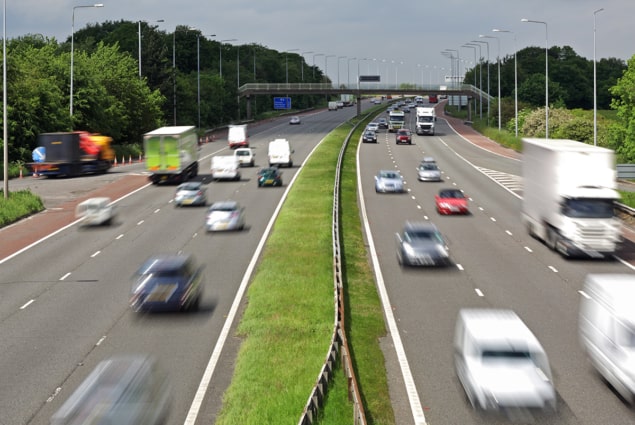
Motorists in the US appear surprisingly flexible when it comes to choosing fuels that reduce carbon dioxide emissions, researchers have found.
After conducting surveys online and face-to-face at fuel stations, John Helveston of George Washington University, US, and colleagues determined that consumers of gasoline (petrol) and E85 – an ethanol-dominated blend – were most willing to consider alternative fuels, whereas diesel users were more strongly wedded to their current choice. Nearly all respondents, however, were prepared to pay more at the pump if it would reduce emissions.
The US transport sector is one of the country’s largest sources of carbon dioxide. In the long term, adoption of electric or hydrogen-powered vehicles might decarbonize the sector, but only at the cost of significant investment in new infrastructure. As transport emissions are dominated by “light-duty” vehicles – privately owned cars and small trucks – more modest improvements might be achieved in the meantime by influencing consumer habits. The question is, how amenable are motorists to changing their fuel choices?
“Most research in this area focuses on the vehicle,” says Helveston. “Because most cars only take one type of fuel (gasoline, diesel, electricity, etc.) it’s difficult to study how consumers feel about the fuel without also having to consider other issues with the vehicle.”
To separate fuel-related factors from other influences, Helveston and colleagues created a survey in which different combustion fuels – gasoline, diesel, E85 and compressed natural gas (CNG) – were compared to each other in a format that mimicked the information on a fuel pump. Presenting three random choices each time, the researchers included information about the fuels’ carbon dioxide emissions, origin, and the cost of a tank that would last 300 miles. Participants were asked to use this information to choose between the fuels under the assumption that their vehicle could run on any of them.
“To me, the most surprising finding was the relatively high value we found that consumers stated they would be willing to pay to reduce carbon dioxide emissions from their fuel,” says Helveston. “This was a surprisingly robust finding.”
Based on fuel prices in 2015 (just before the survey was conducted), this premium works out to an average of $4.63 per 300-mile tank, or about $150 per tonne of carbon saved. In comparison, $150 is at least three times higher than the estimated “social cost of carbon” commonly used to quantify the effect of emissions.
The results were also surprising because this premium was accepted by almost everybody: 96% of respondents were prepared to suffer a financial burden to reduce emissions. One might wonder, then, how the survey population’s near-universal willingness to pay can be reconciled with the prevalence of climate scepticism in the US.
“I think the key to this apparent contradiction are the words ‘survey population’,” says Helveston. To minimize the effect of self-selection, the researchers recruited participants without first revealing the subject of the questionnaire. The sample included 331 online respondents and 127 who were approached in person at fuel stations in California, where E85 and CNG are most widely available. But although individuals with a range of political and environmental opinions were among the respondents, the sample was certainly not representative of the population at large.
“Given the large variation in preferences and views of the American populace, I am certain we did not capture the full set of perspectives,” says Helveston. “I think this is a major limitation of the study and an important one to highlight.”
But even if the results are not entirely representative, it seems that at least a portion of the public is willing to shoulder additional costs to protect the environment. The finding suggests that improved labelling on the fuel-station forecourt might prompt some consumers to switch to less carbon-intensive fuels where possible.
Next, Helveston and colleagues will investigate consumer knowledge and preferences regarding electric vehicles (EVs), which promise greater emissions reductions – if they become widely adopted.
“Given how new EVs are to the world, most consumers know very little about them, and that lack of knowledge may be a significant barrier to consumers forming positive preferences for EVs,” says the researcher.
Helveston and colleagues reported their findings in Environmental Research Letters (ERL).





